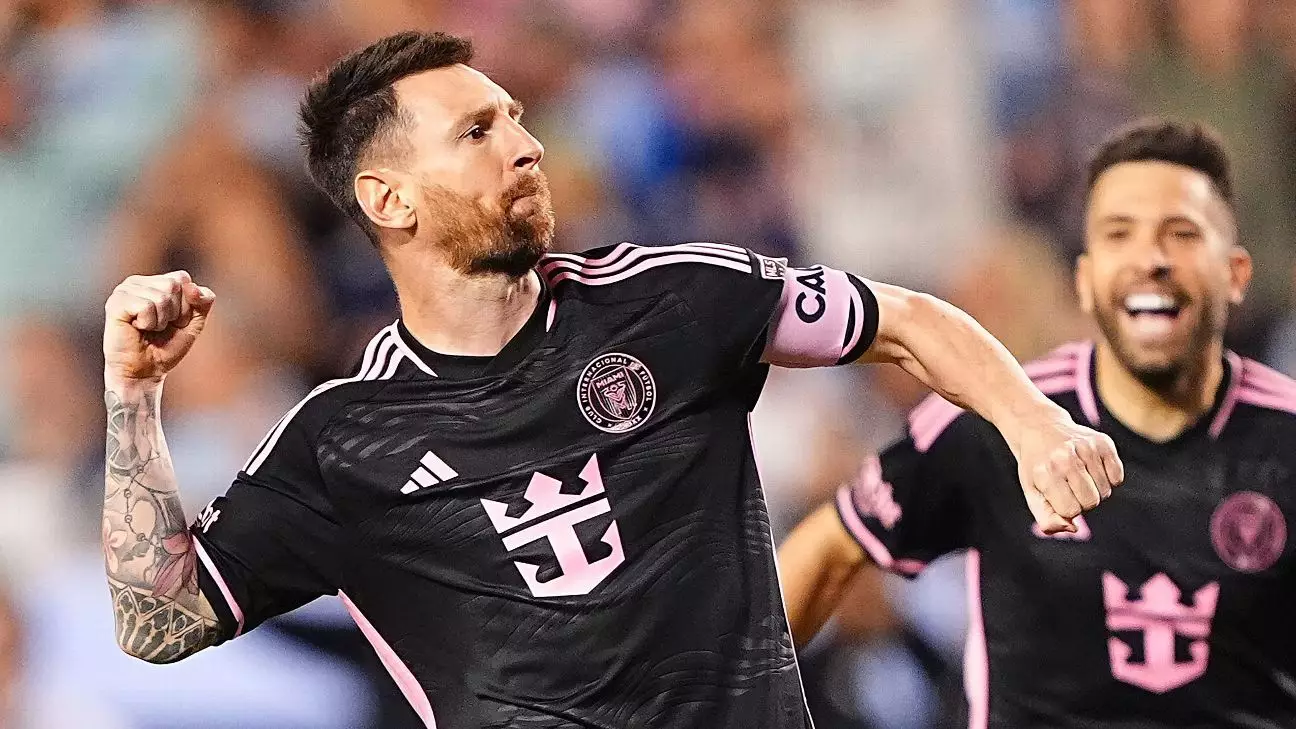In the realm of sports, few debates stir as much passion and discourse as that surrounding the Most Valuable Player (MVP) award. The subjective nature of the MVP criteria fosters a wide array of interpretations, leading fans, analysts, and players alike to dive into fervent discussions about what truly constitutes “value” in sports. The recent announcement of Lionel Messi as the MLS Landon Donovan MVP added another layer to this complex conversation. Is he the best player, the most transformative player, or simply a statistical juggernaut? Analyzing Messi’s season with Inter Miami provides insight into these questions and the broader implications of awarding an MVP title.
The MVP title can be understood through multiple lenses. For some, it represents the most dominant athlete, one whose individual performance is peerless, regardless of their team’s standing. Others might argue that the MVP should be the player who elevates their team’s performance, setting records and leading them to success. There’s a significant faction that weighs numerical contributions heavily—goals, assists, and all manner of statistics that can be quantified. In a sport like soccer, these numbers are compounded by the philosophical nuances of what value means: how do we measure a player’s influence both on and off the field?
When Messi joined Inter Miami, he transformed the franchise from an also-ran team into champions, leading them to a record-setting Supporters’ Shield in 2024. His on-field contributions—20 goals and 16 assists—are undeniably impressive, not just in raw numbers but also in the goal contributions per 90 minutes played, overshadowing others in the league. However, pertinent questions arise around his participation; did his limited appearances during the season diminish his candidacy?
An Analysis of Participation and Performance
Participation is a critical metric in determining value. Messi’s presence on the field undeniably lifted the performance of Inter Miami, yet he only participated in 19 out of 34 games, resulting in a participation rate of approximately 55.8%. Comparatively, MVP winners in other major North American leagues often compete in a higher percentage of games relative to their team’s schedule. Whether Messi’s absence due to injury and international duty is a significant hindrance or a negligibly impactful factor remains to be debated.
Despite missing a substantial portion of the season, the difference in Miami’s performance with and without Messi is glaring. With him in the lineup, they boasted 2.7 goals per game and a formidable 2.21 points-per-game average. But examining their performance without him reveals that the team would still have approached an impressive 72 points over an entire season. So, was Messi the indispensable asset that led to their success, or merely a key contributor among several others?
While raw statistics tell part of the story, they aren’t the whole truth. Messi’s influence extends beyond the pitch. His mere presence in MLS has attracted other high-profile players like Sergio Busquets and Luis Suárez, enhancing the overall quality of the league. Could it be argued that Messi’s impact on the team—and indeed, the league—is immeasurable in terms of not just performance, but also in marketability, ticket sales, and global interest? The financial ramifications of having a player of Messi’s stature are undeniable and add a layer of complexity to the MVP discussion.
While FIFA’s guidelines suggest that MVP voting should focus primarily on on-field performance, it’s hard to ignore the subconscious influence that Messi’s marketability and presence have on a game that thrives on excitement and star power. The MLS has seen increased merchandise sales, sponsorships, and media rights since Messi’s arrival; these factors contribute to the overall valuation of a player’s impact and complicate the traditional criteria for MVP assessment.
In the realm of MVP discussions, Messi’s case serves as a reminder of the nuances that often complicate definitive answers. His impressive individual statistics combined with his transformative impact on Inter Miami make for a compelling argument in favor of his MVP award. However, the questions of participation and context raise valid concerns about whether he should truly claim the title in a year where his availability was limited.
Ultimately, this evolving debate underscores how subjective and variable the definition of “value” can be in sports. As long as there are differing philosophies on what constitutes an MVP, these discussions will continue to provoke thought and ignite passion among fans and analysts alike. Messi may indeed be the MVP of the season, but the conversation around it reflects the larger complexities inherent in awarding such titles—complexities that make sports so riveting to follow.

